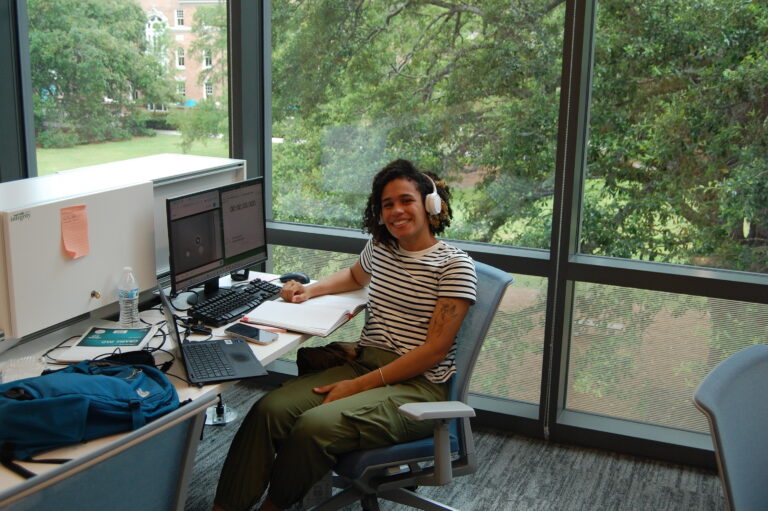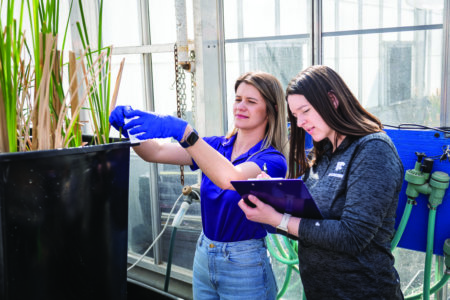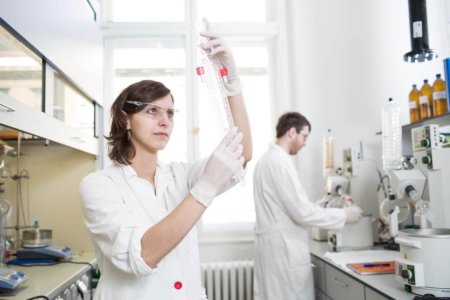
The complex world within our cells holds the key to understanding life itself. Cell and molecular biology delves into this fascinating field, exploring the fundamental building blocks and processes that control cellular function. An advanced degree in this field goes a step further, giving you deeper knowledge and more practical skills to unlock these secrets. Take researchers like Dr. Jennifer Doudna, who revolutionised gene editing with CRISPR. Her PhD in CMB formed the foundation for this groundbreaking technology, now used to treat genetic diseases and explore new frontiers in medicine.
Through advanced CMB programmes, you’ll gain in-depth knowledge of topics like DNA replication, protein synthesis, and cellular signalling. You’ll also master more intricate lab techniques, like gene manipulation and microscopy, crucial for solving cellular mysteries. This specialised training prepares you for many careers, from biomedical research to biotechnology, where you could develop life-saving drugs or engineer innovative therapies.
If this aligns with your interest, here are three institutions that you can consider:

The Master’s in Cell and Molecular Biology programme at Tulane University sets you up for postgraduate professional schools, including Medical, Dental, Law, and PhD programmes. Source: Tulane University
Tulane University
Nestled in New Orleans, Louisiana, Tulane University‘s Department of Cell and Molecular Biology (CMB) is a hub for students passionate about unveiling the mysteries of life at its most fundamental level. The department aims to provide students with a deep understanding of cellular and molecular processes while equipping them to apply this knowledge to real-world challenges in medicine, technology, and environmental science.
The department offers a master’s programme designed to enhance students’ competitiveness for postgraduate professional programmes, including Medical and Dental Schools as well as Veterinary, Optometry, Business, Law, and PhD programmes.
What truly sets the CMB master’s programme apart is its unique structure. Students can choose between a one-year or a two-year track. The one-year master’s programme equips students with a strong foundation for success in clinical programmes such as medical school or research-focused PhD programmes.
The two-year track prepares students for careers in the biotechnology and biomedical research sectors. Students engage in rigorous coursework encompassing the fundamentals of biology while gaining practical experience through laboratory and clinical rotations. The department actively seeks internship placements with biotechnology companies, giving graduates a valuable edge in the job market.
Regardless of the chosen track, students benefit from real-world experience, thanks to the programme’s focus on professional development. This translates to 50 hours per semester dedicated to service learning and shadowing opportunities at local healthcare facilities, research labs, and other relevant locations in New Orleans. Apply to the Department of Cell and Molecular Biology today.

The Department of Molecular and Cellular Biology at UC Davis contributes significantly to various graduate programmes in the College of Biological Sciences. Source: University of California, Davis/Facebook
University of California, Davis
At the University of California, Davis (UC Davis) — the sixth best public research university in the nation — you’ll find the Department of Molecular and Cellular Biology. Here, a vibrant community of faculty members unites to discover life at the molecular, cellular, and organism levels.
MCB focuses on the fundamental structures, functions, and regulation of molecules and cellular systems across all living organisms — plants, animals, and microorganisms. Their research and teaching push the envelope, always encouraging collaboration not only within the department but across the entire UC Davis campus and beyond.
This commitment to interdisciplinary excellence is facilitated by two state-of-the-art research technology cores. The MCB Light Imaging Facility makes possible live cell imaging and super-resolution techniques, while the Bio Electron Microscopy facility provides expertise and imaging systems to support several research areas, from biophysics to medicine.
This environment, coupled with expert faculty, empowers students in MCB’s highly interdisciplinary graduate programmes. Tailored to individual research interests, these programmes provide a unique learning experience. Students gain knowledge from a vast network of scholars as they venture beyond traditional departmental structures. Graduate groups include a wide range of specialities, including Animal Behaviour, Biochemistry, Neuroscience, and Plant Biology, ensuring students find their niche within the field of molecular and cellular biology.

The Department of Biochemistry and Molecular Biology at Michigan State University is jointly administered by the Colleges of Natural Science, Human Medicine, and Osteopathic Medicine. Source: Michigan State University/Facebook
Michigan State University
Michigan State University (MSU) stands at the forefront of scientific discovery with its top-ranked Cell and Molecular Biology (CMB) programme. Offered by the Department of Biochemistry and Molecular Biology (BMB), this interdisciplinary PhD programme brings together nearly 40 graduate students and 90 faculty members, all driven by a shared fascination: understanding the mechanisms that govern the structure and function of cells.
While research interests within CMB are diverse, a unifying thread runs through the programme. Students delve into specialised areas like plant biochemistry or enzyme catalysis, yet all benefit from a broad curriculum encompassing cell and molecular biology’s vast landscape. This allows students to tailor their studies while gaining a well-rounded foundation in the field.
The programme leverages the strengths of MSU’s collaborative environment. Students conduct research across various departments and research centres. The programme offers exciting dual-degree options, including Quantitative Biology and Integrative Toxicology, as well. For those passionate about medicine, the path to an MD/PhD is open, requiring admission to the College of Osteopathic Medicine or the College of Human Medicine.
Beyond its interdisciplinary nature, the programme thrives on its extensive research opportunities. Faculty expertise spans a wide spectrum, including plant biochemistry, structural biology, genomics, and more. This breadth allows students to explore their specific research interests while contributing to groundbreaking discoveries across the field of cell and molecular biology.
*Some of the institutions featured in this article are commercial partners of Study International










